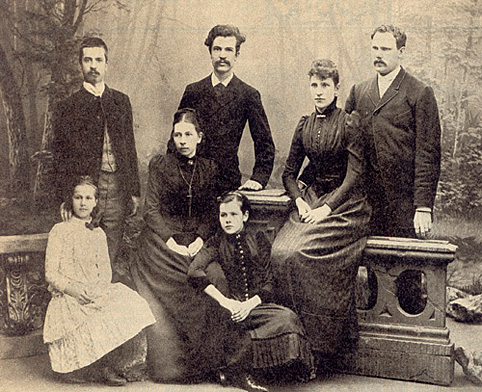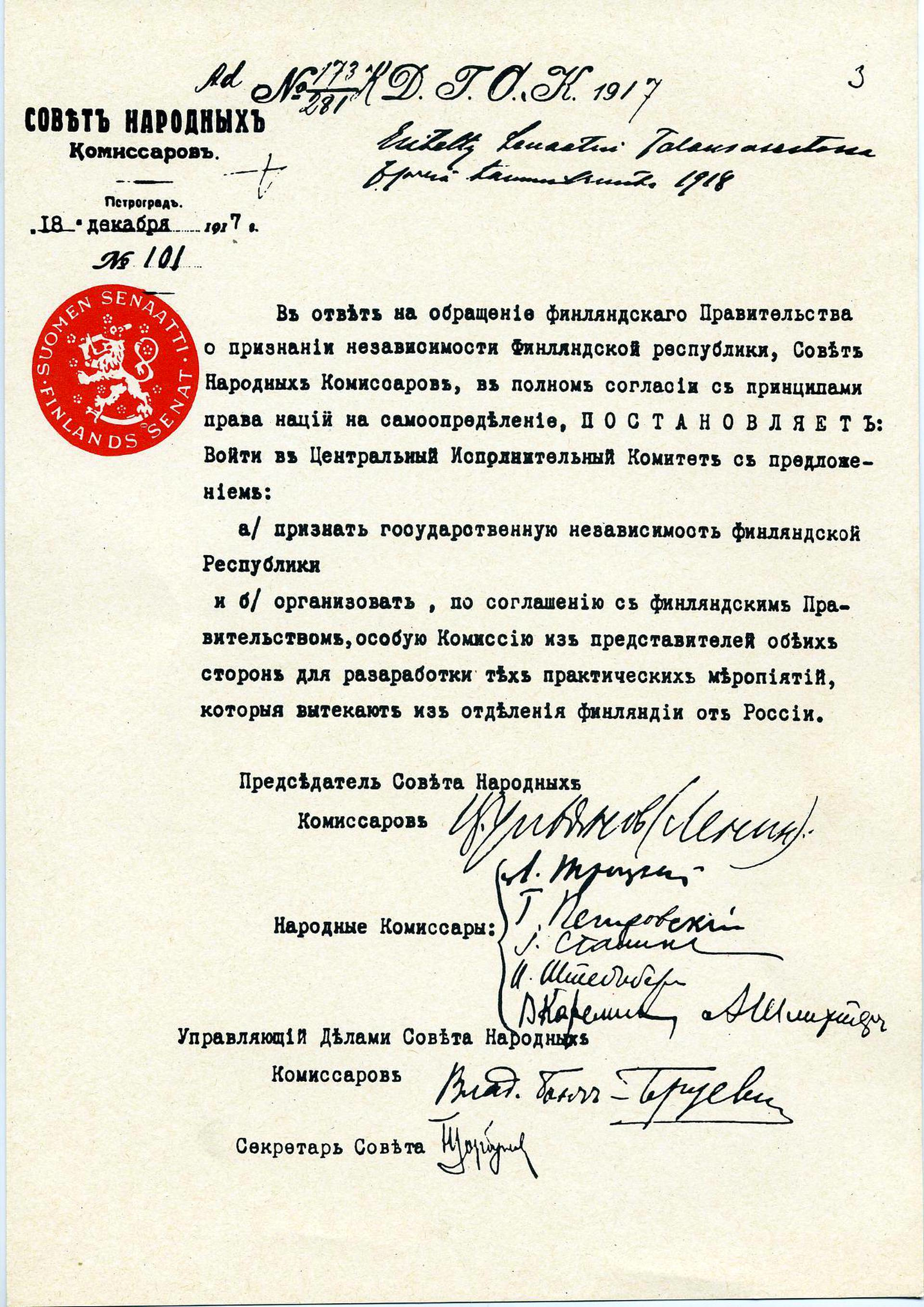|
Kaarle Krohn
Kaarle Krohn (10 May 1863 – 19 July 1933) was a Finnish folklorist, professor and developer of the geographic-historic method of folklore research. He was born into the influential Krohn family of Helsinki. Krohn is best known outside of Finland for his contributions to international folktale research. He devoted most of his life to the study of the epic poetry that forms the basis for the Finnish national epic, the ''Kalevala''.Mary Ellen Brown Bruce A. Rosenberg Peter Harle Kathy Sitarski, ''Encyclopedia of Folklore and Literature'' 1998 Early life Krohn was born in Helsinki. He was the son of journalist and poet Julius Krohn, and his sisters were Aune, Helmi and Aino Kallas, who were Finnish authors. Krohn is best known outside of Finland for his contributions to international folktale research. Krohn passed his matriculation exams in 1880, earned his candidacy degree in 1883 at University of Helsinki, and completed his doctorate in 1888. At the age of 18, he conducted ... [...More Info...] [...Related Items...] OR: [Wikipedia] [Google] [Baidu] |
Helsinki
Helsinki ( or ; ; sv, Helsingfors, ) is the Capital city, capital, primate city, primate, and List of cities and towns in Finland, most populous city of Finland. Located on the shore of the Gulf of Finland, it is the seat of the region of Uusimaa in southern Finland, and has a population of . The Helsinki urban area, city's urban area has a population of , making it by far the List of urban areas in Finland by population, most populous urban area in Finland as well as the country's most important center for politics, education, finance, culture, and research; while Tampere in the Pirkanmaa region, located to the north from Helsinki, is the second largest urban area in Finland. Helsinki is located north of Tallinn, Estonia, east of Stockholm, Sweden, and west of Saint Petersburg, Russia. It has History of Helsinki, close historical ties with these three cities. Together with the cities of Espoo, Vantaa, and Kauniainen (and surrounding commuter towns, including the eastern ... [...More Info...] [...Related Items...] OR: [Wikipedia] [Google] [Baidu] |
Axel Olrik
Axel Olrik (3 July 1864 – 17 February 1917) was a Danish folklorist and scholar of mediaeval historiography, and a pioneer in the methodical study of oral narrative. Olrik was born in Frederiksberg, the son of the artist Henrik Olrik. Artist Dagmar Olrik, judge Eyvind Olrik, historian Hans Olrik and cultural historian Jørgen Olrik were siblings of his.Bengt Holbek"Axel Olrik" '' Dansk Biografisk Leksikon'', retrieved 1 January 2013 Career Olrik began his studies at the University of Copenhagen in 1881. In 1886, he won the university gold medal for an essay on the age of the Eddic poems; he received his Master of Arts in Nordic Philology in 1887 and his Ph.D. in 1892. The following year, he became a private docent at the university. On 1 April 1896 he was awarded a temporary position in Scandinavian folklore, which on 9 April 1913 was converted into an extraordinary professorship. Apart from a period at Kristiania (now Oslo) in 1892 studying with Moltke Moe,Alan Dundes, '' ... [...More Info...] [...Related Items...] OR: [Wikipedia] [Google] [Baidu] |
Finnish People Of German Descent
Finnish may refer to: * Something or someone from, or related to Finland * Culture of Finland * Finnish people or Finns, the primary ethnic group in Finland * Finnish language, the national language of the Finnish people * Finnish cuisine See also * Finish (other) * Finland (other) * Suomi (other) Suomi means ''Finland'' in Finnish. It may also refer to: *Finnish language * Suomi (surname) * Suomi, Minnesota, an unincorporated community * Suomi College, in Hancock, Michigan, now referred to as Finlandia University * Suomi Island, Western ... * {{disambiguation Language and nationality disambiguation pages ... [...More Info...] [...Related Items...] OR: [Wikipedia] [Google] [Baidu] |
Writers From Helsinki
A writer is a person who uses written words in different writing styles and techniques to communicate ideas. Writers produce different forms of literary art and creative writing such as novels, short stories, books, poetry, travelogues, plays, screenplays, teleplays, songs, and essays as well as other reports and news articles that may be of interest to the general public. Writers' texts are published across a wide range of media. Skilled writers who are able to use language to express ideas well, often contribute significantly to the cultural content of a society. The term "writer" is also used elsewhere in the arts and music, such as songwriter or a screenwriter, but also a stand-alone "writer" typically refers to the creation of written language. Some writers work from an oral tradition. Writers can produce material across a number of genres, fictional or non-fictional. Other writers use multiple media such as graphics or illustration to enhance the communication of thei ... [...More Info...] [...Related Items...] OR: [Wikipedia] [Google] [Baidu] |
1933 Deaths
Events January * January 11 – Sir Charles Kingsford Smith makes the first commercial flight between Australia and New Zealand. * January 17 – The United States Congress votes in favour of Philippines independence, against the wishes of U.S. President Herbert Hoover. * January 28 – "Pakistan Declaration": Choudhry Rahmat Ali publishes (in Cambridge, UK) a pamphlet entitled ''Now or Never; Are We to Live or Perish Forever?'', in which he calls for the creation of a Muslim state in northwest India that he calls " Pakstan"; this influences the Pakistan Movement. * January 30 ** National Socialist German Workers Party leader Adolf Hitler is appointed Chancellor of Germany by President of Germany Paul von Hindenburg. ** Édouard Daladier forms a government in France in succession to Joseph Paul-Boncour. He is succeeded on October 26 by Albert Sarraut and on November 26 by Camille Chautemps. February * February 1 – Adolf Hitler gives his "Proclamation to ... [...More Info...] [...Related Items...] OR: [Wikipedia] [Google] [Baidu] |
1863 Births
Events January–March * January 1 – Abraham Lincoln signs the Emancipation Proclamation during the third year of the American Civil War, making the abolition of slavery in the Confederate states an official war goal. It proclaims the freedom of 3.1 million of the nation's four million slaves and immediately frees 50,000 of them, with the rest freed as Union armies advance. * January 2 – Lucius Tar Painting Master Company (''Teerfarbenfabrik Meirter Lucius''), predecessor of Hoechst, as a worldwide chemical manufacturing brand, founded in a suburb of Frankfurt am Main, Germany. * January 4 – The New Apostolic Church, a Christian and chiliastic church, is established in Hamburg, Germany. * January 7 – In the Swiss canton of Ticino, the village of Bedretto is partly destroyed and 29 killed, by an avalanche. * January 8 ** The Yorkshire County Cricket Club is founded at the Adelphi Hotel, in Sheffield, England. ** American Civil War – ... [...More Info...] [...Related Items...] OR: [Wikipedia] [Google] [Baidu] |
Finnish Declaration Of Independence
The Finnish Declaration of Independence ( fi, Suomen itsenäisyysjulistus; sv, Finlands självständighetsförklaring; russian: Провозглашение независимости Финляндии) was adopted by the Parliament of Finland on 6 December 1917. It declared Finland an independent nation, ending its autonomy within Russia as the Grand Principality of Finland, with reference to a bill simultaneously delivered to the Parliament to make Finland an independent republic instead. Declaring independence was only part of the long process leading to the independence of Finland. The declaration is celebrated as Independence Day in Finland. History Revolution in Russia After the February Revolution and the abdication of ''Tsar'' Nicholas II, Grand Prince of Finland, on 2 March (15 March N.S.) 1917, the personal union between Russia and Finland lost its legal base – at least according to the view in Helsinki. There were negotiations between the Russian Provisi ... [...More Info...] [...Related Items...] OR: [Wikipedia] [Google] [Baidu] |
Russification Of Finland
The policy of Russification of Finland ( fi, sortokaudet / sortovuodet, lit=times/years of oppression; russian: Русификация Финляндии, translit=Rusyfikatsiya Finlyandii) was a governmental policy of the Russian Empire aimed at limiting the special status of the Grand Duchy of Finland and possibly the termination of its political autonomy and cultural uniqueness in 1899–1905 and in 1908–1917. It was a part of a larger policy of Russification pursued by late 19th–early 20th century Russian governments which tried to abolish cultural and administrative autonomy of non-Russian minorities within the empire. The two Russification campaigns evoked widespread Finnish resistance, starting with petitions and escalating to strikes, passive resistance (including draft resistance) and eventually active resistance. Finnish opposition to Russification was one of the main factors that ultimately led to Finland's declaration of independence in 1917. Under Tsarist Russi ... [...More Info...] [...Related Items...] OR: [Wikipedia] [Google] [Baidu] |
Hagiography
A hagiography (; ) is a biography of a saint or an ecclesiastical leader, as well as, by extension, an adulatory and idealized biography of a founder, saint, monk, nun or icon in any of the world's religions. Early Christian hagiographies might consist of a biography or ', a description of the saint's deeds or miracles (from Latin ''vita'', life, which begins the title of most medieval biographies), an account of the saint's martyrdom (called a ), or be a combination of these. Christian hagiographies focus on the lives, and notably the miracles, ascribed to men and women canonized by the Roman Catholic church, the Eastern Orthodox Church, the Oriental Orthodox churches, and the Church of the East. Other religious traditions such as Buddhism, Hinduism, Taoism, Islam, Sikhism and Jainism also create and maintain hagiographical texts (such as the Sikh Janamsakhis) concerning saints, gurus and other individuals believed to be imbued with sacred power. Hagiographic works, especi ... [...More Info...] [...Related Items...] OR: [Wikipedia] [Google] [Baidu] |
Viking Age
The Viking Age () was the period during the Middle Ages when Norsemen known as Vikings undertook large-scale raiding, colonizing, conquest, and trading throughout Europe and reached North America. It followed the Migration Period and the Germanic Iron Age. The Viking Age applies not only to their homeland of Scandinavia but also to any place significantly settled by Scandinavians during the period. The Scandinavians of the Viking Age are often referred to as ''Vikings'' as well as ''Norsemen'', although few of them were Vikings in sense of being engaged in piracy. Voyaging by sea from their homelands in Denmark, Norway, and Sweden, the Norse people settled in the British Isles, Ireland, the Faroe Islands, Iceland, Greenland, Normandy, and the Baltic coast and along the Dnieper and Volga trade routes in eastern Europe, where they were also known as Varangians. They also briefly settled in Newfoundland, becoming the first Europeans to reach North America. The Norse-Gaels, ... [...More Info...] [...Related Items...] OR: [Wikipedia] [Google] [Baidu] |
Heroic Epic
An epic poem, or simply an epic, is a lengthy narrative poem typically about the extraordinary deeds of extraordinary characters who, in dealings with gods or other superhuman forces, gave shape to the mortal universe for their descendants. Etymology The English word ''epic'' comes from Latin ''epicus'', which itself comes from the Ancient Greek adjective (''epikos''), from (''epos''), "word, story, poem." In ancient Greek, 'epic' could refer to all poetry in dactylic hexameter (''epea''), which included not only Homer but also the wisdom poetry of Hesiod, the utterances of the Delphic oracle, and the strange theological verses attributed to Orpheus. Later tradition, however, has restricted the term 'epic' to ''heroic epic'', as described in this article. Overview Originating before the invention of writing, primary epics, such as those of Homer, were composed by bards who used complex rhetorical and metrical schemes by which they could memorize the epic as received ... [...More Info...] [...Related Items...] OR: [Wikipedia] [Google] [Baidu] |









